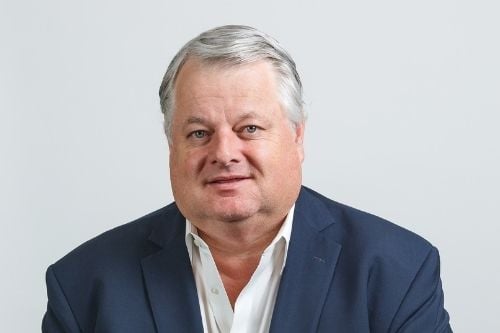

Commercial insurance pricing has now increased every quarter for the last two years, according to Marsh’s latest Global Insurance Market Index. While capacity largely remains strong, there has been some tightening or hardening in certain product lines and regions. These premium hikes have come at a time when the economy is strained as a result of the COVID-19 pandemic. For many companies, this means they’re potentially having to pay more for their insurance while their revenue is down.
When premium prices shoot up in a hard market, companies often seek reprieve in alternative risk transfer. This allows entities to insure more of their own risks. They might do this via self-insurance (retaining more of their own risk), by joining a risk retention group where they pool premium with similar entities to cover specific risks, or by setting up a captive insurance company.
Hard markets tend to broaden the appeal of captives, in particular. This is a trend that Kirby Hill (pictured), president of industry solutions and specialty programs at Skyward Specialty Insurance Group, has noticed over the past few years.
“There are many industries that have been quite severely impacted by the hardening market conditions,” he told Insurance Business. “The better, more sophisticated, risk managed companies want to stabilize their costs, improve their margins and take greater control over their insurance programs. At Skyward Specialty, we’ve been managing a lot of group captives, where we’re bringing together 50 to 100 companies that have similar homogenous exposures, but they’re all best-in-class risks.
“For example, we run one group captive for fuel and energy clients. They’re all very serious about risk management. They’re underwritten by us, but they’re voted in by the members, so there’s a strong affinity in the group and they’re very oriented towards best practices. This creates a unique dynamic where the members are much more involved in the pricing and risk selection than a normal insured would be in the first-dollar market.”
Given how the market is poised, Hill expects group captives to be a “strong growth area” for Skyward Specialty for several years. Specific sectors where the specialty insurer is seeing more interest include construction and commercial transportation.
“Construction and transportation insureds have both been hit significantly by rate increases in the marketplace,” said Hill. “Many insureds don’t feel they should be lumped in with the rest of the cohorts in the market. They think their businesses are run in a far superior fashion from a risk management standpoint, and they want to take more control over their costs and their insurance programs by joining a group captive. Each and every one of these members is taking on a lot of risk, and we’re providing the paper, the reinsurance, and some of the ancillary services to support their objectives.”
Skyward Specialty places great importance in businesses built around technology platforms, and those willing to leverage innovative tools like artificial intelligence (AI) to shore up their risk management practices and operational efficiencies.
In each of the sectors that Hill described as showing great interest in group captive solutions – fuel and energy, construction, and transportation – there are significant auto exposures. Over the past few years, rates in the commercial auto market have skyrocketed thanks to issues like distracted driving, the inflated cost of auto repairs, and the nuclear plaintiff’s bar in the United States. These ongoing problems have impacted claim severity, forcing insurers to hike up their premiums, potentially reduce their capacity, and introduce stricter underwriting guidelines.
But there are ways for insureds to manage their commercial auto exposure with the use of technology. Hill explained: “From an auto standpoint, we’ve deployed AI technology by utilizing outside APIs to really hone in on what we believe are the risk drivers in a specific business. We’ve built out that infrastructure in Skyward Specialty so that our specialty transportation division, our construction division, and our energy division – where insureds use automobiles in their day-to-day activities – are utilizing this technology.
“It’s helping us get a better understanding of driver behavior, and it’s helping us explain to our insureds and their drivers how that might be impacting the cost of their insurance long term. It also helps to drive the risk management and safety procedures of our insureds. For example, all of the companies in our fuel and energy group captive are using AI-based telematics technology to predict and track driver data on a real-time basis. This helps members to set risk management expectations and best practices.”
